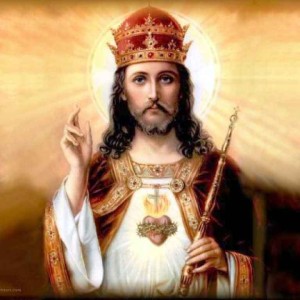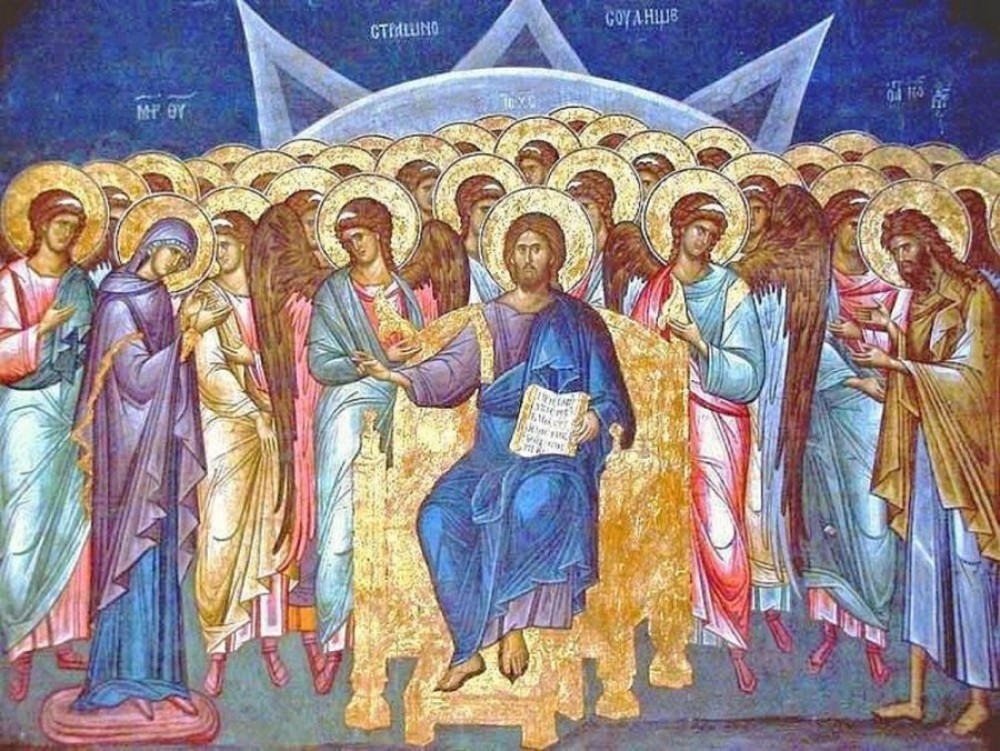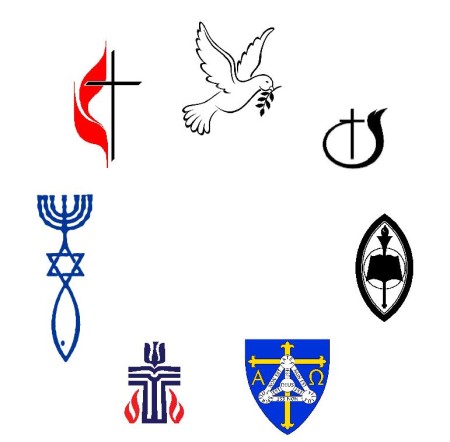One of the most important points to understand about Catholicism is that the truth of the Catholic Church flows from the truth of Jesus Christ. Her status is inexorably tied up with His. I’ve been reading John Allen’s book-length interviews with Archbishop Dolan, A People of Hope. I’m excited to do a full review of it soon (it’s a superb book), but I wanted to go ahead and highlight something that Abp. Dolan said, because I think it illustrates this point neatly:
Just as most people missed the divine in Jesus because of his humanity, so do most people miss Jesus in the Church because of our earthiness, because we are clumsy, we are sinful, we are awkward. But this is how Jesus continues to radiate his grace and mercy, through the Church. That’s the leap of faith today. I think Father Ron Rolheiser says it well: We want a king without the kingdom; we want a shepherd without the other sheep; we want a father, with us as the only child; we want a general without an army; we want to believe without belonging.
There are two points to make about this: first, that the success of the Church flows from the success of Christ; and second, that we need to change our thinking about salvation.
Consider the various claims that the New Testament makes about Jesus, or that He makes about Himself. For example, that He’s the Good Shepherd (John 10:14), the Messiah-King (John 1:49), the Bishop of Souls (1 Peter 2:25), and the Cornerstone of the Church (Ephesians 2:20).
These claims all tie the success of the Church with the success of Jesus Christ. If the flock is wiped out completely, you’ve got a bad shepherd. A good king doesn’t let his kingdom get destroyed, if he’s powerful enough to stop it. Likewise, a good bishop wouldn’t let all the souls under his watch be led astray. And a church that crumbled into apostasy within a few centuries of its founding is one built on sand, not solid rock, and particularly not the Cornerstone of Christ (Matthew 7:24-27).
 This is perhaps the most important and misunderstood point in discussing all things Catholic. We tend to lose the forest for the trees in discussing theology and apologetics, particularly on Protestant-Catholic issues. For example, relying on Scripture alone, it’s possible for someone to conclude that works play a role in justification, or that they don’t. Scriptural support can be found for either proposition, and I’ve seen plenty of holy and intelligent Christians come out both ways.
This is perhaps the most important and misunderstood point in discussing all things Catholic. We tend to lose the forest for the trees in discussing theology and apologetics, particularly on Protestant-Catholic issues. For example, relying on Scripture alone, it’s possible for someone to conclude that works play a role in justification, or that they don’t. Scriptural support can be found for either proposition, and I’ve seen plenty of holy and intelligent Christians come out both ways.
But step back a second. On this point (or various other issues), the side claiming that the Catholic Church is wrong isn’t just arguing that the preponderance of the Scriptural evidence points in the other direction. He’s really claiming that everyone in the Church prior to Luther (for at least a few centuries, perhaps even all the way back to the Apostles) was led astray by the visible Church, and fed false doctrine: heresy. But as I said above, if the entire flock was led astray, that doesn’t just reflect poorly of the earthly shepherds, but of the Chief Shepherd in Heaven (1 Peter 5:4).
In other words, this isn’t just about a narrow doctrinal dispute, important though that may be. This is about whether we believe that Christ abandoned His Bride, permitting His Flock to wander en masse into heresy and apostasy, or whether He continued to protect Her, and continued to guide His Sheep. Concluding that the whole Church fell into Apostasy isn’t just an erroneous and dangerous claim to make about the Church, but about Jesus.
When we’re faced with a question of doctrine, our first inclination is generally to try and figure it out on our own: “what do I think Scripture says on this point?” But a much better route is to ask, “What does the Church teach?” And: “how could She be wrong?”
The second point I want to draw out is that Dolan’s comment exposes a deficiency in how we think about the Church. In the aftermath of the controversy over his claims that Mormonism is a cult, the Baptist pastor Dr. Robert Jeffress said that some Mormons could still be saved, since “no one goes to heaven in a group.” Jeffress gets it almost exactly backwards.
Rather, no gets to Heaven alone. We’re carried along by the Body of Christ. You can’t be saved without being connected to this Body, either formally (through Baptism and Confirmation), or at least spiritually. The early Christians were clear on this point: so, for that matter, were the early Reformers.
If you’re saved, you get to Heaven because of the work of too many Christians to name: those who fought and died to preserve the Gospel, those who spread the Gospel all over the world, those who introduced you to the Faith, those who nurtured your faith at church, and countless more.
Plus, as we grow towards God, we grow towards our neighbors, just as bicycle spokes get closer together as they draw nearer to the hub. A sheep that’s by the Shepherd is close to all of the other sheep. It’s only the lost sheep that finds itself alone .
Even if you lived your entire life in complete physical isolation, this would still be true. Perhaps you lived out your whole life on a desert island somewhere, with no access to a Bible or a Catechism or a priest, and came to know God simply through the use of reason. Even in that case, your faith would be strengthened by the prayers of the faithful around the world, without you even knowing it. When St. Paul asks that “requests, prayers, intercession and thanksgiving be made for everyone” (1 Tim. 2:1), including world leaders (1 Tim. 2:2), it’s because he understands how powerful prayer is. What’s more, while you may be physically alone, you’re you’re “surrounded by … a great cloud of witnesses” (Heb. 12:1) with the Saints in Heaven. They help lead us Home.
Finally, our own salvation is for our own good, but also the good of those around us. As we become more saintly, we draw others closer to Christ, just as we were drawn closer by the prayers and holy example of those who went before us.
Now, of course, it’s certainly true that there’s an individual aspect to salvation. We can’t simply expect to be saved because we come from a devout family, or attend a holy church. But we need to stop imagining that salvation is just between “me and Jesus.”
As Americans, our default approach is to treat church membership the way we choose membership in a political party, or a club, or a school. We figure out what we believe, and what we’re wanting, and then we find a church that agrees with us. In other words, we choose our favorite flavor, or our favorite brand.
Even once we’ve joined, we view that church as little more than a support structure for what we’ve already got, not as a particularly important part of our pilgrimage towards Heaven. Those around us are of little more important than our classmates at school – they might have a helpful bit of knowledge from time to time, but our success or failure is rather independent of their own.
Hopefully, this post shows why I think that approach is all wrong. Christ doesn’t leave us as ecclesial consumers to choose our favorite flavor of Christianity. He establishes Himself as the eternal Shepherd, guiding and guarding the Flock. If we find ourselves going in a separate direction from the flock, we’re going in a separate direction from the Shepherd.
Elizabeth Erazo was recently asked, “Do you agree with every single Catholic doctrine?” Her answer was one of the best I’ve seen, particularly given that she’s not Catholic (yet):
Well, that’s hard to say, since I don’t know every single Catholic doctrine. I am reading slowly through the Catechism, but I’ve come to realize it’s not necessary to dissect every doctrine to see if I agree.You see, really all that matter is this: is the Catholic Church the One True Church that Christ established? If the answer is yes, then it doesn’t matter two hoots whether I agree with what they say or not, I just need to have faith that Christ is still guiding His flock, and submit to the authority of the Church.




“our own salvation is for our own good, but also the good of those around us.” In our increasingly prideful world, those words are so important. For me they remind me of the parable of the talents, and that we are expected to return more than we were given, or as a priest once opined about a question God might ask us at the entrance to His kingdom: “What? You came alone?”
It is sooo easy to forget that Second Great Commandment, and focus on the Second, Part B: “as yourself.”
Side point, do we have any idea what Jeffress’s definition of a cult is? Surely it’s something like a body that deviates from orthodox Christianity in any significant way. But if so, his outfit would also be a cult by any reasonable definition of Christian orthodoxy. I mean, his outfit is as anti-Papist as it is anti Mormon (Jeffress personally is as well) and so surely they are deviating significantly from the faith as it was established for 1500 years.
This is a very timely blog sir and I am also glad to read this since I am currently having a conversation through email with a born again christian regarding salvation & baptism. I noticed that doing this inappropriate dichotomies regarding faith AND works & water AND Spirit they not only limit God’s action to spiritual things they also separate members (both of the Catholic & their churches) from each other thereby having this individualistic mentality. This eventually is echoed by your outcry on the “me & Jesus” thinking that diminishes what the Bible thinks about the Church: having members with different gifts but is One, Body of Christ, Bride of the Lamb, guarded from error, & a FAMILY.
“If the flock is wiped out completely, you’ve got a bad shepherd”
Stealing this for when I next have to talk about the Great Apostasy 🙂
“If we find ourselves going in a separate direction from the flock, we’re going in a separate direction from the Shepherd.”
Boom.
Yeah, loved that too 🙂
Hey Brock! How’s married life?
I always feel bad discussing off topic stuff in the comments section, but the wedding was amazing and life since has been better than I could have dreamed–probably due to the rosaries you guys offered up for it!
So that part of this post is an “on topic” comment:
“If we find ourselves going in a separate direction from the flock, we’re going in a separate direction from the Shepherd.”
Joe, the good shepherd went off the beaten trail to find and get his sheep back in the flock. How does the fact that billions of “sheep” have not returned since the 1500’s impact Christ’s ability to Shepherd?
“A sheep that’s by the Shepherd is close to all of the other sheep.”
This is so assuring to me! I know some may think my approach to finding the Church is slightly un-intellectual, but this is the principle I banking on: that if I truly seek Christ with all my heart, soul, mind, and strength, then it will be almost impossible not to find the Church as well, especially if I am watching for it.
I am not leaving my intellect to rot in the journey, but I’m slowly coming to understand it’s more faulty than I once imagined. Thus, prayer, petition, and devotion begin to take a stronger role. 🙂
Thanks for the mention! It’s so delightful to see my name on your blog!!
Like the man in my profile pic said: “A thousand difficulties don’t make one doubt.” If you trust the messenger, you can trust the message, even if you don’t understand all of it.
Joe, on a related note, it might be useful for us if you could delve a little more into the ‘whys and wherefores’ of the Holy Spirit guiding the Church. This is something a lot of Catholics struggle to understand – trying to explain the Ordinary Magisterium to a Catholic friend was like pulling teeth!
“What do you think? If a man owns a hundred sheep, and one of them wanders away, will he not leave the ninety-nine on the hills and go to look for the one that wandered off?”
Matthew 18:12
Brock,
That passage presupposes that the sheep has wandered away from the flock, and thus the Shepherd. It’s in His Mercy that He’ll still extend the arm of salvation. Likewise, plenty of souls not formally Catholic are likely saved through this same mercy, but it’s in spite of their wandering from the Flock, not because of it.
Chatto,
That does sound like a good idea for a post. I’ll try to get to it soon.
Elizabeth,
I really enjoy watching your religious journey unfold, and hope that wherever life takes you, you keep plugging away at the blog.
God bless,
Joe
Amen to this post Joe. And I completely agree with EE’s quote from her blog. When it comes to doctrines such as the invalidity of women priests, I do recognise that it’s more important that I submit to Church teaching, rather than look for the church that agrees with me.
I think though that the Catholic argument in this regard would be infinitely stronger if there weren’t an Orthodox church with its own hierarchy and sources of authority. As someone said in a comment recently, how could I as an Anglican really decide whether to become Catholic or Orthodox if not by which of them agreed with me more? Meanwhile, since I was born and baptised into the Anglican church of England, isn’t it rather schismatic of me to abandon my religious community, especially since it would necessarily imply that those I left behind were somehow ‘less Christian’ than me.
My prayer is for whole denominations to come back together in unity. As you say in your post, we should not see ourselves as individuals, making a consumer choice. The church body I was born into has at least as much claim on my faithfulness as the others. I really hope to see a Catholic/Orthodox reunion in my lifetime, and then maybe we Anglicans will finally decide if we’re Catholic or Protestant.
with love.
This is a good article and has good timing. We are coming to Christ the King Sunday. I really enjoy when you leave us with a question. We need to be asking the right questions and not the easy questions. Grace and Peace to you all!
Tess,
I think that my post here on the Orthodox also answers your question of how a believer should determine which visible Body to be part of.
And Rev. Hans, good to know about ending posts with questions. I’ll bear that in mind?
Joe